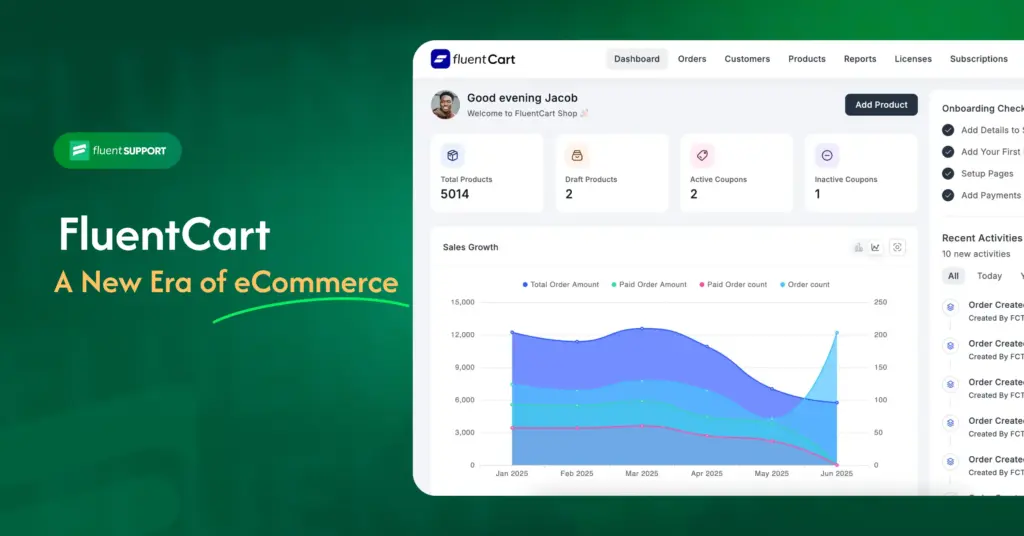
Is the customer always right? Yes! …. And um… No.
Confusing right? I know. One thing I learned working in a company WP Manage Ninja that puts tons of effort into satisfying customers is that customers can be outrageous. My advice on it?
Be ready.
That being said, let’s check out the oldest customer service myth in the book,
“The customer is always right”
In this article, we’re going to look at how this myth has morphed over the years and whether it applies to your business (or, any business) or not.
A bit of history
The inception and popularization of the phrase happened in the early 20th century due to the efforts of Marshall Field in the US and Harry Gordon Selfridge in the UK. Both were prominent store owners, creating a cultural ripple that we still feel today.
So how, or more importantly, why was it coined?
For starters, the late 19th century was a time when fraudulence was very common. Customers were ripped off no matter the industry. In times when the standard was “buyers beware”, these two gentlemen sought to go the opposite way. They put priority on the customer’s opinion, and that worked incredibly well for their businesses.
As with all things, Germans and Japanese outdid these English entrepreneurs by taking their philosophy a step further. While in Germany, the phrase is “the customer is king”, Japan made it into “the customer is god”.
Of course, they never intended their phrase to be taken literally. Fast forward a hundred years, and that’s exactly what happened. Which is kind of the reason I thought of writing this post.
Why the customer is not always right?
Even back in 1914, the flaw with this phrase was obvious. Customers are human and, by nature, can be dishonest or have lofty expectations. If a business tries to take every claim at face value, the losses would be immeasurable, other than the swift demise of your business.
So when is the customer not right? – and more importantly, why.
1. Demoralizing to team culture
Every business has its own culture. This culture is shaped by outside forces (industry standard, proficiency, etc.) and internal requirements (regional culture, employee demographic, etc.). It’s fair to say that this culture doesn’t grow overnight.
In other words, you and your team have built this culture over a significant period of time. So, whenever a customer challenges or jeopardizes this culture, it’s time to put your foot down.
So when your business takes customers always being right literally, it puts your service and support reps in an awkward position. You might instruct them to follow a protocol when handling customers. If your business throws away those guidelines every time they conflict with a customer’s claims, it can get precarious pretty quickly.
This can have a grave impact on the people you are employing for these roles. Don’t forget that customer handling policies are your own, and it’s only you who can protect them from violation.
That being said, it’s also your job to protect your employees. Creating a policy for handling abusive/inappropriate customers is a big part of protecting your team and in turn, your business culture.
2. It can lead to poor customer experiences
3 out of 5 businesses are now focusing heavily on customer experience. Putting the customer in the driver’s seat should be a good approach in this regard, right?
The truth is it’s not.
Here’s why. The first thing to remember is customers can have unreal expectations, and as a business, you can’t control that. However, if your business functions on this principle, you’ll quickly discover that your agents are busy moving heaven and earth for an unreal customer while real customers with real problems sit and wait.
This leads to unsatisfied customers and compromised customer experiences.
3. It was never meant to be taken literally
A hundred years is a long time! Hence, most have forgotten that this phrase was never meant to be taken literally. As with most things today, context is everything.
This phrase was coined right at a time when there was no real accountability for businesses, and customer opinions were blown away. It was meant to encourage a culture where companies actively listen to the customers’ opinions.
However, things have changed significantly since then. Mostly in the sense that there are strict laws to monitor businesses and higher accountability. Not to mention the rise of social media gave rise to the customer’s voice.
Do anything wrong today, and it’ll go viral tomorrow morning. So businesses now have to be careful about what they claim and promote.
However, that doesn’t mean customers will always be right. As businesses face more accountability, the customer also has to bear some of the burdens.
Let’s just say social media cuts both ways. Customers need to be careful about claiming clout as well. Falsifying claims about a business is suicide for your online credibility. There’s no point in luling yourself into believing netizens won’t find out that you’re lying. It’s not a matter of if, but when.
That being said, no company can function in this day and age while believing a faulty philosophy coined a century earlier.
4. Customers are sometimes just wrong
Contrary to (un)popular belief, customers are just wrong sometimes. It’s important to remember as a business that, you are dealing with humans. It’s part of human nature to exaggerate and fabricate ideas to get their point across.
Customers can and will do this if the opportunity arises. With this in mind, no business should operate/act based on this phrase. Listen to your customers but use your judgment to assess if their claims are legit.
5. It can lead to unrealistic expectations
Let’s take a step back from this anti-customer mindset and look at it differently. Maybe the customer isn’t lying or fabricating facts. Maybe they are asking for a legit feature.
In this case, what are your reps supposed to do?
Let’s get one thing straight.
A claim, no matter how well-founded, can’t be a reason to challenge a company’s workflow. A customer might ask for a feature that doesn’t bring value for other customers or customizations that you don’t offer.
It’s important to let these customers know why their request is being neglected. Be polite and stern about your explanation, and stick with it.
A customer request is never about one client. It usually requires changes for everyone involved. So no matter how well-founded the claim, if it doesn’t scale, don’t do it. Most importantly, teach your agents to identify these cases effectively in real situations and how to handle them with grace.
Take it for a spin!
Offer the best support with ZERO costs. Installation is easy and setup is a breeze. Try it NOW!
But Why is The Customer Always Right?
So are you supposed to disregard every customer query, thinking they are misusing some or all of their leverage as a customer? Definitely not. Here are 5 reasons for that.
1. Customers make or break a business
At the end of the day, your business depends on customers. It’s not overstating if you say customers can make or break your business. So when dealing with customer interactions, it’s important to identify the customer you are dealing with.
It’s easy to identify nefarious customers with an integrated CRM and helpdesk. Even with all these tools, it all comes down to the person talking to the customer. If your experienced agents think a claim is legit, it most likely is.
So bear this in mind before dismissing a customer claim. It will come to haunt you if you guess wrong.
2. Backlash is dangerous
We’ve already stated how customers are leveraging social media and review platforms to scrutinize businesses. This backlash can be extremely dangerous, especially for small businesses.
Keep in mind that the customer can be either wrong or right. A business can only be customer friendly. Because the other outcome is that you have no business left cause all your customers left due to bad service interactions.
3. Happy customers multiply
In my opinion, the problem with “the customer is always right” is the “always” part. Nothing is always the same. If assuming customers are always right isn’t ideal, so is assuming they are always wrong.
The judgment of being right or wrong comes later. First, you have to listen. When you actively listen to customers, they feel valued. Valued customers are happy customers. These happy ones are your advocates and loyalists.
Advocacy and Loyalty are the best ways to grow your business because acquisition is harder than retention. In other words, happy customers multiply much more rapidly than unengaged ones, and that’s how the world works.
4. It’s a benchmark for customer service excellence
If not taken to the letter, the phrase actually helps your customer service team develop a customer-focused approach. Whether the queries are legit or not, you should always be open to communicating. Going the extra mile for the customer can come later.
However, having this philosophy as part of your customer-facing jobs agenda gives them the direction they need to offer a remarkable customer experience.
5. Feedback is a gold mine
Customer feedback is the most important resource for a business. Customer feedback helps your service team gain insight into your users’ pain points. You can get answers to questions that no one else can answer. Such as,
- Is my product easy to onboard?
- Does it require a steep learning curve/overhang time?
- Are customers finding what they need?
- Can the product be made more efficient?
These are all crucial questions that only your customers can reliably answer. Without valuing the customer’s feedback, these answers will remain unanswered – and your business growth will cease.
Wrapping Up
So that’s our take on the most misused marketing slogan maybe ever. Let us know in the comments why you think it’s right or wrong!
The bottom line – nothing is always true! Customers can be wrong, nefarious, and untrustworthy. They can also be correct, modest, and generous. As a business, the best you can do is identify these for their real value and act accordingly.
Until next time, happy serving!
Your own Support Portal in 5 minutes!
Start off with a powerful ticketing system that delivers smooth team collaboration and powerful integrations.












Leave a Reply